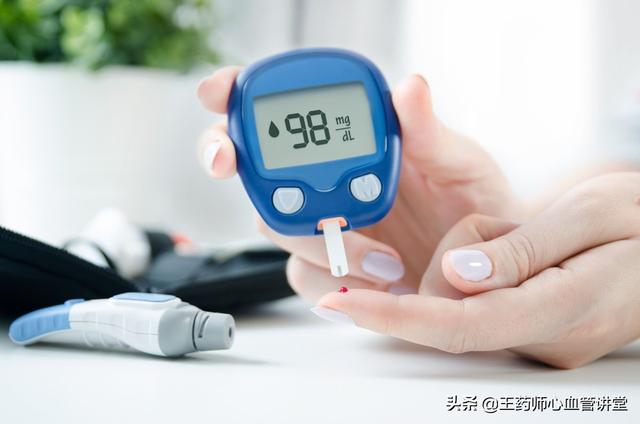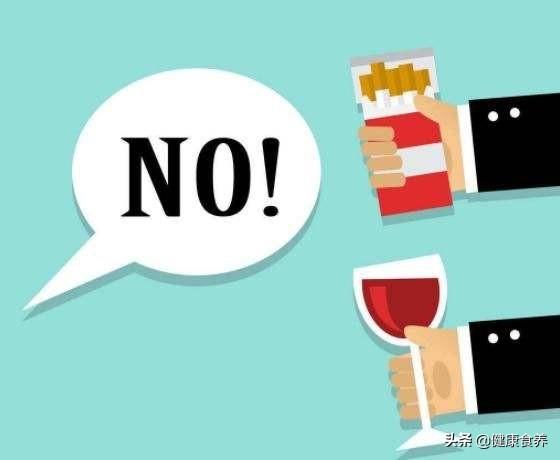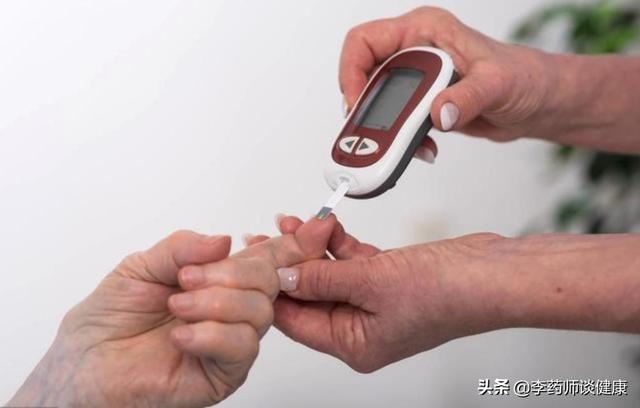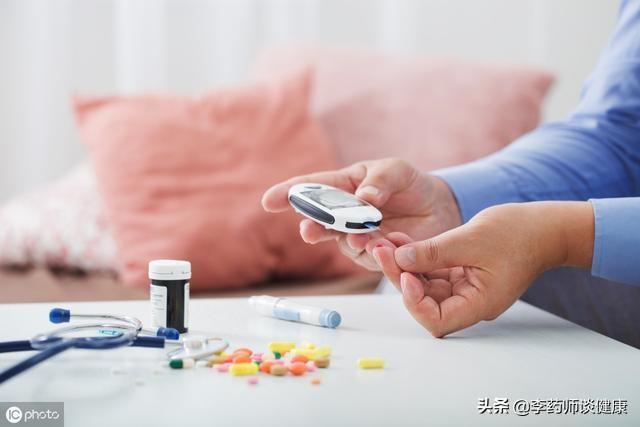Are there any effects of drinking alcohol every day with diabetes?
Hi, I'm glad to be able to answer your question and I hope my answer helps you in some way!
Can diabetics die from drinking every day?
That's an interesting question.
It depends on how you drink? Do you drink every day and get drunk every time you drink? Or do you drink a little bit of wine to enjoy yourself?
If it's the first case, then a word of advice, it's not diabetes that's killing you but maybe cirrhosis and liver cancer are waiting for you.
In the second case, it doesn't necessarily mean that you will die right away; no one says that diabetics can't drink a little alcohol. However, your physician will not advise you to drink alcohol because it will not do your body any good at all, so why go ahead and drink it when it will do no good at all!
There are three words that diabetics fear the most: "Complications."
That's right, diabetic hyperglycemia itself is not fatal, what is fatal are the complications. It can lead to hypertension, hyperlipidemia, coronary heart disease, vascular sclerosis, cerebral infarction, cardiac infarction, renal failure, optic nerve damage, non-healing skin ulcers, diabetic foot and a series of complications. Is diabetes scary? Of course it's scary, just listening to these complications is scary enough, not to mention the presence of so many fatal factors.
See for yourselves how many of these diseases are related to drinking. Right, once you compare them, most of the diseases are related to drinking, right? Look at it this way, do you still dare to drink so much alcohol?
If you want to go early, then you can choose to drink daily, after all, your body is your own master, then the consequences are to be borne.
However, as a medical professional, I do not recommend you to drink, not to mention you are a diabetic, even if you are a normal person, I do not recommend drinking, because drinking alcohol is not very good for the body, but a lot of harm, but also easy to miss work. If you have to have a social gathering, you should drink appropriately! Cherish your body!
Day after day, depending on how much to drink, drink a little bit of influence is not very big, but a lot more than normal people, so diabetics are best not to drink.
Diabetic patients, generally have complications exist, body resistance is reduced, poor physical condition, if you drink every day will accelerate organ failure, although drinking does not necessarily die immediately, but will reduce life expectancy because of drinking.
Drinking alcohol every day will aggravate the burden on the kidneys, and diabetic patients, who often happen to also be patients with nephrotic syndrome, or even uremia, diabetic patients can also cause blurred vision and blurring. Drinking alcohol will aggravate the occurrence of the condition.
Diabetic patients are often accompanied by itchy skin, dermatitis and other symptoms, drinking alcohol will stimulate the occurrence of skin diseases, if the beer will also contain a lot of sugar, causing blood sugar rise. And often drink beer may also cause gout and other evidence ......
Drink less, eat more, and for diabetics, it's best not to drink at all!
The 80-year-old Mr. Wang in the neighborhood is a diabetic who has had the disease for many years and has been injecting insulin for many years. Similarly, there is a relative in my hometown who has diabetes and started injecting insulin when he was only in his 50s. One is in his 80s, the other in his 50s, one has had the disease for more than 20 years, and the other for only 3 years, so it is logical that the one with a shorter history of the disease is in better health. But it seems to me that this is really not the case with the two men's physical conditions.
The fact is that the man is over 80 years old, but he is still very healthy, and he even goes out for a walk, so he doesn't look like a diabetic who has been sick for a long time. However, this relative, who has been sick for three years, is in his 50s and looks like he's in his 70s or 80s. He has lost all his teeth and his eyes are not working well, so he can't go out to earn money anymore, and he stays at home every day. It is said that he is still drinking and has just quit smoking.

Are there any effects of drinking alcohol every day with diabetes?
There are probably two reasons why a 50-something relative has become this way:
One is that when diabetes is first diagnosed you don't take your medication in a timely manner, you don't care if your blood sugar is already high, and you don't start intervening until later when complications arise, and as a result, your blood sugar rises to the point where you have to inject insulin directly to get it right.
Secondly, there is not the slightest scruple in life, after diabetes still have wine at all times, cigarettes do not leave the mouth, when he was young, he loved to drink, it is said that the morning get up no food to eat, have to drink a few mouthfuls of wine on an empty stomach to be able to get up, it is difficult to quit after the disease, lunch and dinner still have to drink, said that away from the wine, there is no point in living.
That's the kind of person, that's the kind of situation, and I really don't know where he's going to end up.
The consequences of drinking alcohol every day with diabetes are unimaginable!
Drinking and smoking habits are developed over the years, so many people in the diagnosis of diabetes or other chronic diseases, it is difficult to say quit to quit, the name is that drinking in moderation has benefits. But the truth is, not to mention already have diabetes, even for healthy people, drinking alcohol does not have any benefits. Studies in reputable journals have reported that the safest amount of alcohol to drink is no alcohol at all, and this is especially true for people with diabetes! If a diabetic consumes alcohol every day, the consequences are unimaginable.

1. Not conducive to blood sugar management:Someone once did an experiment, found that after drinking alcohol blood sugar will plummet, which makes some patients think that diabetics can drink alcohol. But the fact is, drinking alcohol to reduce blood sugar is only temporary, usually 3-5 hours, blood sugar will also rebound to rise, so big blood sugar fluctuations more harmful. Not only that, if drinking alcohol on an empty stomach may also lead to severe hypoglycemia, resulting in brain tissue damage, or even death.
2, affect the efficacy of hypoglycemic drugs:Clinical commonly used hypoglycemic drugs such as gliclazones, glitazones, sulfonylureas, etc., these drugs have to be metabolized by hepatic enzymes, and alcohol will compete for these metabolizing enzymes, which will inhibit the metabolism of the drug and increase the risk of adverse reactions. In addition, many oral hypoglycemic drugs will also inhibit the decomposition of alcohol metabolites acetaldehyde, resulting in alcohol poisoning, serious shock.
3. Acceleration of complications:Long-term drinking will lead to fluctuations in blood glucose, but also affect the normal diet, and blood glucose fluctuations, dietary nutrition is not uniform harm is to accelerate the occurrence of diabetic complications, especially some chronic complications, such as diabetic neuropathy, diabetic nephropathy and so on. In addition, drinking alcohol will also raise blood pressure, and high blood pressure and high blood glucose will work together to play a role in the cardiovascular, induced cardiovascular complications.
4. Increase the risk of other diseases:Drinking harms the liver, which we all know, and long-term drinking can lead to alcoholic liver disease, such as fatty liver and hepatitis. In addition, drinking alcohol can also harm the digestive system, nervous system, etc., increasing the risk of gastritis, gastric ulcer and other diseases.
I am Pharmacist Wang, dedicated to helping you manage your body by explaining complex and difficult disease knowledge in plain words. Your praise is my greatest motivation! In addition, if your family members also have related troubles, please forward this article to them!
Everyday drinking without moderation without disease can drink to death, smoking if it is a chronic suicide, excessive alcohol is a rapid demise.
A diabetic who drinks every day has serious consequences.
One example is my cousin's husband, who had been diagnosed with diabetes and was stubborn and capricious and ended up blind in one eye.
I remember once when I visited their home, I saw the mess on the floor, my cousin had just cried.
Cousin saw me and cried to me, said; a few days ago just measured the blood glucose, meal two to 19, 5, or not in the right, yesterday and friends went out to drink, and drink high, it is a friend to send him back "What is this friend", cousin can not hold back the anger, the home can be wrestled with all the things to break.
After this fight, a few days later, cousin's husband had an accident, suddenly blind in the right eye, rushed to the hospital, after the hospital doctors cautioned that this is too high blood sugar caused by hemorrhage in the fundus of the eye vision can not be restored.
Since then, the cousin's husband has changed his ways, basically white wine does not touch, occasionally happy to drink a little red wine.
Daily insulin injections, exercise, and a sensible diet brought the diabetes under control, but the power was never restored.
I hope that those who have been diagnosed with diabetes must stop drinking because your body is not yours alone and you have to be responsible for your family.
Thanks for the invitation, drinking alcohol in diabetics can have a very bad effect on the body, alcohol is a high calorie stuff that can cause a rise in blood sugar and make it less manageable.
If diabetes ignores the effect of alcohol consumption on blood glucose and drinks every day, it can also lead to peripheral neuropathy, aggravate and cause serious complications, such as: diabetic foot, diabetic retinopathy, diabetic nephropathy, and many other complications, which can cause chronic damage to the heart, kidneys, blood vessels, nerves, eyes, and so on.
Of course, like the subject's question, will diabetes kill you if you drink alcohol every day? I think it will, and it will lead to death due to serious complications caused by long-term alcohol consumption. Therefore.It's best for diabetics to do without a drop of alcohol.
Since ancient times, no wine is not a feast, due to the important position of wine in daily life, diabetic patients completely to drip alcohol is also very difficult, diabetic patients can be in the case of good blood glucose control, drink a little bit of wine in moderation, to relieve the cravings, a bit of addiction.
Diabetics should always keep a clear head when drinking alcohol, and know exactly when they can and cannot drink, and at what amount they should stop. In daily life, "moderation" is a very difficult word to grasp.
Therefore, diabetic patients should be clear when drinking alcohol: the number of times per week is no more than 2 times, of which female patients should preferably not exceed 15 grams of alcohol per time (about 350ml of beer, 150ml of wine, or 45ml of liquor), and men should preferably not exceed 25 grams of alcohol per time. After drinking alcohol, eat less food that is too salty, too spicy and too greasy, focus on light food and reduce the portion of main food appropriately. In addition, when drinking alcohol, do emergency measures in advance, so as not to cause serious consequences because of a momentary negligence, if you feel unwell after drinking alcohol, please find a doctor immediately. I hope my answer can help you, don't forget to retweet and follow me if you feel rewarded by my answer!
I hope my answer can help you, don't forget to retweet and follow me if you feel rewarded by my answer!
If you have diabetes and still drink every day, will it affect your life expectancy? For diabetics, we certainly do not advocate drinking every day, the relationship between drinking and diabetes, today we will discuss with you.
For non-diabetic patients, if they often drink large amounts of alcohol, alcohol will affect the health of the liver, which will lead to a decrease in the body's insulin sensitivity and the emergence of insulin resistance, the study found that the amount of alcohol intake of more than 123g per week, more than 10 times per week, than the moderate drinking (alcohol intake of no more than 15g per day, no more than 5 times per week) people, diabetes The incidence of diabetes is 2.4 times higher, which is the relationship between long-term heavy drinking and abnormal blood glucose metabolism.
Even people without diabetes, long-term heavy drinking will greatly increase the chances of abnormal blood sugar metabolism, that for friends with diabetic problems, if still not able to change the bad habits of alcoholism, still insist on a large number of drinks every day, alcohol on the body to bring harm to the body, not just reduce insulin sensitivity, the following aspects of the risk, are worthy of extra attention.
hypoglycemic risk
Diabetic patients drink a lot of alcohol, especially if they drink a lot of alcohol on an empty stomach, because alcohol will hinder the output of hepatic glycogen in the fasting state, therefore, diabetic patients who drink alcohol on an empty stomach will have the risk of hypoglycemia, not only high blood sugar will damage health, hypoglycemia is also harmful to health, hypoglycemia not only causes palpitations, sweating, fatigue, and other uncomfortable symptoms, but also serious hypoglycemia may cause shock, acute brain damage, cardiovascular disease attacks and other problems. Severe hypoglycemia can also cause shock, acute brain damage, cardiovascular disease attacks, etc. Therefore, the risk of hypoglycemia caused by alcohol consumption deserves special attention from diabetic patients.
Increased risk of developing diabetic complications
The adverse effects of alcohol consumption in diabetics, especially when consumed in large quantities over a long period of time, on the complications of diabetes are also noteworthy. The risk of diabetes is high precisely because of the risk of complications during the long-term course of diabetes, which include macrovascular complications of cardiovascular system disease, as well as microvascular complications of the peripheral nervous system, skin, diabetic foot, diabetic nephropathy, and other aspects of the diabetes mellitus. The occurrence of these complications is closely related to abnormal glucose metabolism and chronically high or unstable blood glucose, which adversely affects the health of the body's blood vessels as well as various organs.
The process of long-term heavy drinking, a large amount of alcohol intake will also affect cardiovascular health, as well as for the nervous system, renal system, liver, pancreas, etc. will also have a negative impact, long-term heavy drinking, on the one hand, the health hazards of alcohol will be superimposed on the health hazards of diabetes, accelerating the risk of diabetic complications, on the other hand, alcohol will also affect the stability of blood glucose control, the chance of blood glucose elevation and hypoglycemia will be increased. On the other hand, alcohol also affects the stability of blood glucose control, increasing the chances of blood glucose elevation and hypoglycemia, and the instability of blood glucose will further increase the risk of diabetes complications. Complications of diabetes appear too early, occur too quickly, cardiovascular disease, kidney function is impaired or even failure, these aspects of the problem, may be life-threatening, you say diabetic patients long-term heavy drinking will affect life expectancy?
Medication Safety Risks Noteworthy
Regardless of how much to drink, for diabetic patients, it is strongly not recommended to drink every day, but also because the vast majority of diabetic patients, is the need for long-term use of medication to control blood glucose levels, and the vast majority of drugs will be metabolized by the liver, alcohol is also metabolized by the liver and in the process of long-term alcohol consumption may affect the metabolism function of the liver, therefore, between drinking every day and daily medication, there is often a certain contradiction. Therefore, there is often a contradiction between drinking every day and taking medication every day.
Drugs and alcohol may interact, affecting the normal efficacy of the drug; after taking some drugs with the risk of hypoglycemia, drinking alcohol may also increase the risk of drug-induced hypoglycemia adverse reactions; alcohol's effect on liver function, sometimes also superimposed on the effect of the drug's liver function, resulting in accelerated impairment of liver function, all of these aspects are worth noting that the interaction between drugs and alcohol ..
Therefore, for diabetics, we must recognize the health hazards of diabetes, but also fully recognize the health hazards that may be brought about by long-term heavy drinking, do not let these two hazards superimposed on each other, thus affecting our health, and even affecting our life expectancy, if the original drinking habits of friends, it may be difficult to quit at once, but may wish to start by slowly reducing the consumption of alcohol, gradually reduce the amount of the occasional drink a little bit. Drinking in moderation, in the body without drinking contraindications, and does not affect the health of the body, the occasional small drink, of course, is possible, but if you are not willing to change the original old habits, and still insist on long-term large amounts of alcohol, no matter for the stable control of blood glucose, or the control of the risk of complications, or to maintain the health of the body to live a long time, the impact is negative and unfavorable, so although diabetic patients do not necessarily have to ban alcohol, but must be Therefore, although diabetic patients do not have to ban alcohol, it is very important to limit the consumption of alcohol.
I am diabetic, the onset of my mouth tongue, can not move, a little move on the inflammation of toothache, teeth have fallen out five or six, eyes are indeed blurred, more than ten meters away from the silhouette of the people, but not clear, go to the experience of fasting blood glucose 15 point 6, lipids 5 point 68, I take medication, menu to go for a walk outside, the first two to three years, the control of blood glucose can be, after four or five years of medication not very effective, and now have a Now, with the new medication, the effect is better, the amount is also increased, basically it's okay, I also drink, not much, occasionally drink a little, and now I drink less, sometimes for a few months do not stain, I eat everything, the doctor said the amount of food I can not eat, so I buy some other food plus menus, I can't eat enough.
Don't say drink every day, occasional drinking may have an effect on sugar lovers, for diabetes or high blood sugar, especially for sugar lovers who are taking medication, it is best to abstain from alcohol, if you really can't help but want to drink, it is also necessary to ensure that their blood glucose control is relatively stable, and it is best to avoid taking medication for 6 hours above and below the time of alcohol intake is not recommended to be more than 10g, roughly 250ml of beer, and as far as possible, is Low degree of alcohol, spirits never drink.
Why does drinking alcohol have an effect on sugar addicts?
There are two main aspects, one is the effect on the efficacy of the drug, and the other is the effect on the liver. Alcohol can "increase" the effect of hypoglycemic drugs, if you drink during the medication, it is easy to lead to hypoglycemia, sugar users originally avoided hypoglycemia, because of the large fluctuations in blood glucose will affect the glycated hemoglobin value, which may increase the chances of triggering complications; in addition, alcohol intake inhibits the decomposition of hepatic glycogen in the liver, liver glycogen can be converted to glucose to stabilize blood glucose when blood glucose is low, especially between meals, the more hungry, the other is the impact on the liver. In addition, alcohol intake will inhibit the breakdown of hepatic glycogen in the liver, which can be converted to glucose to stabilize blood glucose at times of low blood glucose, especially when drinking alcohol between meals and in a more hungry state, which is more likely to lead to restricted breakdown of hepatic glycogen and lead to the occurrence of hypoglycemia. For the original pancreatic islet effect "brittleness" is very high sugar, drinking alcohol is more likely to lead to the occurrence of hypoglycemia. Not only diabetic patients, general people if the degree of starvation state drinking alcohol is not necessary to eat after eating, eating staple food can supplement some blood glucose concentration, but also allows the muscles to store some muscle glycogen, can make up for a little bit of hepatic glycogen decomposition limitations. So if you really want to drink alcohol, you must also eat some food containing certain carbohydrates.

We all know that alcohol poses the greatest threat to the liver. Because more than 95% of the alcohol consumed is processed by the liver, no matter how much or how little alcohol is consumed, it actually increases the workload of the liver, and in the long run it is bound to do damage to the liver. Alcohol's intermediate metabolite is acetaldehyde, and acetaldehyde is a toxic component, must be dehydrogenated again to generate acetic acid, in order to be discharged with the urine, the higher the content of acetaldehyde, the body will appear alcohol poisoning, acetaldehyde will also threaten the health of stem cells, so the liver must be the highest priority to deal with the ingested alcohol, other work that can only wait for the alcohol to deal with the alcohol, so if a large number of often or frequent drinking, then the The work of the liver is easily put on hold, and the liver is the key to transport and synthesize fat, the synthesis of fat is less, the excessive sugar ingested may be more free in the blood, affecting blood sugar; the transport of a small amount of fat out of the liver, more fat will be piled up in the liver, inducing a fatty liver, the liver's function declines, and the liver's ability to regulate blood glucose also declines, and there is a kind of diabetes called A type of diabetes is called "hepatogenic diabetes", so the liver is also very important for blood sugar regulation, protecting the liver is also equivalent to stabilizing one's blood sugar.

And the calories of alcohol are easy to ignore, 1g of alcohol calories is up to 7.5 calories, 1g of fat is only 9 calories, which is not much difference compared to the two. If we drink too much alcohol, we are also equal to the intake of higher calories, and the recommended low-fat, low-calorie diet for sugar users is not suitable. Frequent or large amounts of alcohol consumption may also increase the outbreak of more cardiovascular diseases, such as atherosclerosis, coronary heart disease and other problems, which can also lead to increased chances of complications induced by sugar users who are very afraid of complication attacks. In short, it is best for sugar lovers not to drink alcohol, must drink on New Year's Eve festivals and banquets when a small amount of drink some, try to choose a low alcohol, be sure not to drink every day.
[Professional doctor to answer your questions
It is no secret that such an outcome is very likely to happen, even people without diabetes can be affected by triggering accidents, at least on life expectancy, not to mention diabetes, which is the patient's own metabolic dysfunction disease. This is not alarmist talk, look at a few facts like this.
First of all, after drinking alcohol in the body metabolism of acetaldehyde is a strong stimulant to their own pancreatic islet cells will cause damage to the original fragile pancreatic islet cells to accelerate the death of blood glucose is more unable to be utilized, resulting in high blood glucose, blood glucose damage to blood vessels accelerated to accelerate the risk of cardio-cerebral vascular disease greatly increases the risk of cardio-cerebral vascular accidents may occur at any time.
Secondly, the damage to blood vessels caused by alcohol metabolites is superimposed on the damage to blood vessels caused by hyperglycemia, which accelerates the formation and progression of atherosclerosis and plaque, and aggravates the occurrence of many complications to a greater extent, so that life expectancy is inevitably reduced.
Third, drinking alcohol to stimulate the body to enhance the physiological activities, the consumption of blood glucose greatly increased, and drinking people tend to eat less, the source of blood glucose is reduced, it may be due to the body to consume blood glucose is too fast and can not be replenished in a timely manner and lead to hypoglycemia, hypoglycemia is like breathing oxygen tissues and organs will not be able to play a physiological function, is the same, is to lead to the occurrence of sudden death.
Fourth, people with diabetes often have atherosclerotic vascular lesions, especially plaque formation, alcohol metabolism produced by acetaldehyde and other plaque rupture may be stimulated, which atherosclerotic lipids exposed to the bloodstream, will immediately attract a large number of clotting cells platelet aggregation to form a thrombus, the thrombus can immediately block the blood vessels and lead to the supply of the supply of oxygen is interrupted, if the occurrence of the cardio-cerebral vascular immediately cause cardio-cerebral If the cardiovascular and cerebral vessels are blocked, it will immediately cause cardio-cerebral infarction, and sudden accidental death is not uncommon.
In addition, alcohol consumption is also the main cause of high blood pressure, alcohol consumption has also been proved to be closely related to the development of most cancers, so not only people with diabetes should not drink alcohol, even normal people should also abstain from alcohol, even if it is a little bit less should not be, we should know that there is no safe amount of alcohol for any person, the best thing to do for the wine is to drink zero alcohol, i.e., not a mouthful of alcohol.
I hope this answer can help you, welcome to click on the attention and leave a message, together to learn and exchange more health knowledge.
This question and answer are from the site users, does not represent the position of the site, such as infringement, please contact the administrator to delete.